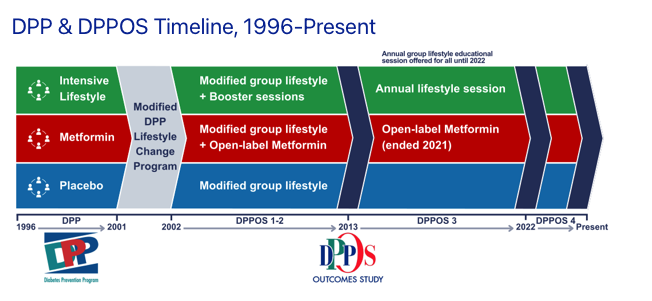When Star Ratings Backfire: How CMS Could Better Support Health In Medicare Advantage
By EMMANUEL ANIMASHAUN The Centers for Medicare & Medicaid Services (CMS) Star Ratings system represents a cornerstone of quality assessment in Medicare Advantage (MA), designed to empower consumers with transparent information whileContinue reading...


By EMMANUEL ANIMASHAUN
The Centers for Medicare & Medicaid Services (CMS) Star Ratings system represents a cornerstone of quality assessment in Medicare Advantage (MA), designed to empower consumers with transparent information while rewarding plans that deliver superior care. Yet recent developments, particularly the seismic downgrading of Humana’s ratings reveal an unintended consequence: a system created to measure and incentivize quality may now be actively undermining it.
The Humana Case: Symptom of a Broader Problem
In 2025, Humana’s Medicare Advantage star ratings collapsed, with only 25% of members remaining in four-star or higher plans, down from 94%. This wasn’t due to declining clinical performance but resulted from CMS’s “Tukey outlier deletion” statistical adjustment implemented with minimal industry consultation. The change raised performance thresholds, causing Humana to lose billions in Quality Bonus Payments and $4 billion in market value. Humana’s legal challenge, arguing that CMS violated the Administrative Procedure Act through non-transparent processes, was denied. Other insurers including UnitedHealthcare and Centene also share concerns about methodological rigidity and that the rating system may have diverged from its purpose of improving patient care.
Perhaps more striking are the cases of Elevance and SCAN, which further illustrate how rigid metrics can distort assessments of actual care quality. In March 2023, both insurers were penalized after allegedly missing a single CMS “secret shopper” phone call, a call they claim was never received. The downgrade cost them tens of millions in Quality Bonus Payments and triggered legal challenges. As SCAN’s CEO wrote, the sanction came despite strong clinical performance and patient outcomes. A federal judge later ruled in favor of SCAN in June 2024, prompting CMS to recalculate the Star Ratings across all Medicare Advantage plans. This episode underscores a key concern: when measurement hinges on unverifiable administrative moments, it may end up punishing rather than promoting quality.
How Quality Measurement Can Undermine Actual Quality
The Star Ratings system aggregates over 40 metrics across preventive care, medication adherence, member experience, and customer service. However, it disproportionately rewards process compliance and documentation over health outcomes. Plans can excel by optimizing coding, maximizing documentation, or boosting survey participation without delivering better care. This misalignment diverts resources from genuine health innovations. Research from an NBER working paper even found that better-rated plans aren’t statistically better at keeping patients alive than lower-rated ones, raising fundamental questions about whether the system measures what truly matters for patient health.
Even more concerning is that MA contracts with higher proportions of dually eligible, disabled, or racially diverse members consistently score lower, not because they provide inferior care, but because the scoring system inadequately adjusts for social risk factors. A JAMA Health Forum study highlighted how plans serving more Black beneficiaries had lower star ratings even when controlling for other factors. This structural bias effectively penalizes plans doing the challenging work of serving populations with complex needs, creating a perverse disincentive to focus on health equity.
The uncertainty from frequent changes in star rating computation could also pose severe implications for strategic planning for companies. When a company like Humana loses billions due to a technical recalibration, it sends a troubling message: long-term investments in quality improvement may not yield returns if measurement methodologies change unpredictably. This volatility makes strategic planning difficult and discourages sustained investment in quality initiatives.
The Real-World Impact on Patients
These methodological shortcomings do not just affect health plans’ bottom lines; they have tangible consequences for Medicare beneficiaries. When plans lose Quality Bonus Payments (QBPs), they often must scale back valuable supplemental benefits like transportation assistance, dental coverage, or in-home support services, or increase plan premiums, as Avalere Health suggests. McKinsey estimates CMS rating changes could cost plans over $800 million in bonuses, reducing resources available for such benefits.
Additionally, rating fluctuations can trigger unnecessary plan switching as members, confused about whether lower stars indicate poorer quality, change plans unnecessarily. These transitions often disrupt established provider relationships and care management programs, potentially harming clinical outcomes. Research shows that disruptions in provider relationships lead to reduced primary care utilization, increased emergency department visits, and higher hospitalization rates, particularly for vulnerable populations with chronic conditions.
Furthermore, plans may hesitate to pilot novel approaches for managing high-cost, high-risk populations if demographic realities mean they could still face rating penalties despite clinical success. This chilling effect on innovation ultimately hurts the beneficiaries who could most benefit from creative care models, reinforcing a system that rewards standardization over meaningful improvements in care delivery for complex populations.
A Framework for Meaningful Reform
To restore the Star Ratings system’s alignment with improving quality care for Medicare beneficiaries, four essential reforms are needed:
1. Stabilize Methodology and Enhance Transparency: CMS must introduce methodological changes only after robust public notice, meaningful stakeholder engagement, and adequate implementation timelines. Transparency in measure development, weighting, and adjustment is fundamental to maintaining system trust and enabling plans to align their quality strategies accordingly.
2. Implement Comprehensive Social Risk Adjustment: The current Categorical Adjustment Index has shown modest impact. A fairer evaluation system must comprehensively account for income disparities, disability status, race, language barriers, and other social factors influencing care delivery and outcomes. This adjustment acknowledges the additional resources required to achieve equivalent outcomes for populations with complex social needs.
3. Reorient Toward Meaningful Outcomes: Emphasis should shift toward measurable health improvements like reduced hospitalizations and better chronic disease management, rather than focusing heavily on process measures or survey results that may not correlate with actual health benefits.
4. Reward Innovation and Health Equity Efforts: CMS should recognize plans making meaningful investments in addressing health disparities and creating innovative care models for underserved communities.
The Humana case, alongside the troubling SCAN and Elevance phone call incident, represents a critical inflection point for Medicare Advantage quality measurement. When a single missed call can trigger devastating financial penalties despite strong clinical performance, and when plans serving millions of beneficiaries can lose billions in value overnight due to methodological changes rather than actual care deficiencies, the system has clearly lost sight of its purpose.
By implementing the proposed reforms, CMS can transform Star Ratings from a compliance exercise into a genuine catalyst for better patient care. The ultimate measure of success should not be statistical perfection or adherence to rigid administrative protocols but whether the system helps vulnerable seniors live healthier, longer lives while reducing disparities in care quality. Only then will Star Ratings fulfill their intended role: guiding beneficiaries to truly superior plans while rewarding insurers who excel at improving health, not just compliance.
Emmanuel is a physician from Nigeria, and a second-year MPH/MBA candidate at the Johns Hopkins Bloomberg School of Public Health and Carey Business School. His work focuses on health financing, delivery reform, and strategic approaches to health systems transformation.





















































































